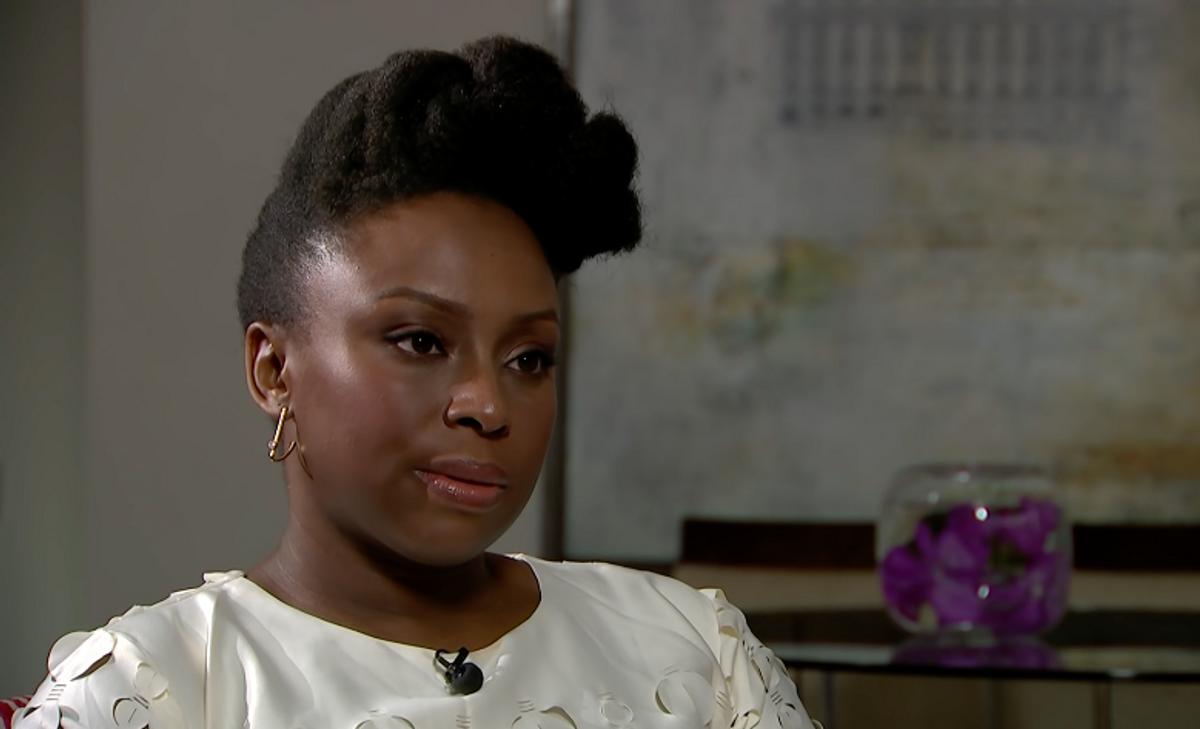
Why Chimamanda Ngozi Adichie's division of cis and trans experiences are misguided.
March 15 2017 12:21 PM EST
March 15 2017 3:30 PM EST
By continuing to use our site, you agree to our Private Policy and Terms of Use.

Why Chimamanda Ngozi Adichie's division of cis and trans experiences are misguided.
Chimamanda Ngozi Adichie, the Nigerian author most widely known as the voice of the feminist treatise in Beyonce's "Flawless," made headlines this week for her confusing and infuriating words about trans women. In an interview, the author would not agree that trans women are "real women"--side note: we need to simply strike the phrase "real women" from our collective vocabulary--and claimed that the problem with gender is that it is experiential.
"It's not about how we wear our hair or whether we have a vagina or a penis," Adichie explained. "It's about the way the world treats us, and I think if you've lived in the world as a man with the privileges that the world accords to men and then sort of change gender, it's difficult for me to accept that then we can equate your experience with the experience of a woman who has lived from the beginning as a woman and who has not been accorded those privileges that men are."
Adichie continued, "So when people talk about, you know, 'Are trans women women?,' my feeling is trans women are trans women."
This all, of course, misses the point that trans women are never men, no matter how late in life they transition. While they may be assigned the wrong gender at birth, assumptively gendered by people they meet and present for decades as men, they are in fact never men. They do not "change gender;" trans women do not live as men because they are not men--trans women are not simply trans women, they are women. We are women.
Adichie's point that trans women benefit from male privilege is a contentious one. Many trans women take the hardline that as they were never men, they have never benefitted from male privilege, which to a degree is true. But it's also true that trans women across the board gained advantages and escaped oppression while they presented as male--that's just the way patriarchy works. This does mean that trans women and cis women have different lived experiences; what it doesn't mean is that this difference makes a trans woman any less a woman.
After her interview went viral, sparking outrage from trans women across the globe, Adichie sought to clarify her comments on Facebook. "Diversity does not have to mean division," she wrote. "Because we can oppose violence against trans women while also acknowledging differences. Because we should be able to acknowledge differences while also being supportive. Because we do not have to insist, in the name of being supportive, that everything is the same." So instead of saying "trans women are women," she instead decided to reinforce that they are the other, left out of real womanhood.
Trans women do not ask to be assigned the wrong gender at birth. They do not ask to grow up with the wrong name or the wrong presentation. They do not ask to go through puberty with testosterone running through their bloodstreams and to develop facial hair. They do not ask for male privilege, although Adichie is right that they benefit from it. And when they finally work up the courage to transition, they do not ask to live in a world that hates, others, and murders trans women while still denying them access to real womanhood.
"Chimamanda being asked about trans women is like Lena Dunham being asked about Black women," tweeted trans woman of color and activist Raquel Willis. "It doesn't work. We can speak for ourselves."
\u201cChimamanda being asked about trans women is like Lena Dunham being asked about Black women. It doesn't work. We can speak for ourselves.\u201d— Raquel Willis (she/her) (@Raquel Willis (she/her)) 1489194706
This is the crux of the entire issue: as long as cis women are speaking for trans women about our experiences and our womanhood, we will remain the other, left out of some culturally agreed upon idea of earned womanhood because cis women can never understand our experience. We need to be allowed to tell our own stories, because when we do, cis women might start understanding we have more in common than they think.
Sexy MAGA: Viral post saying Republicans 'have two daddies now' gets a rise from the right